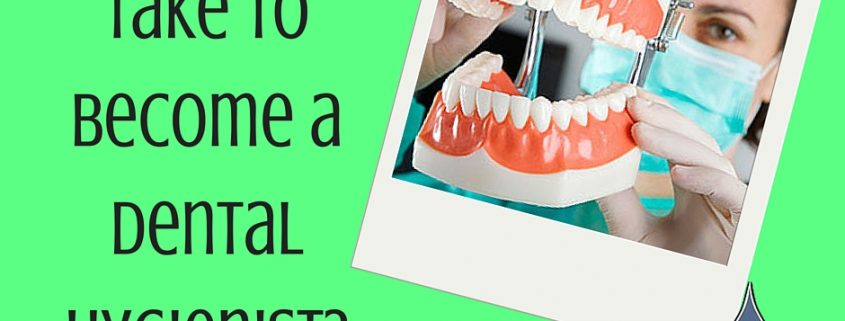What does it take to become a dental hygienist

What skills do I need to become a dental hygienist?
Much like a nurse, there are several things that are absolutely necessary for any aspiring dental hygienist:
- Compassion – chances are, if you want to work in the medical field, you’re already a compassionate person. Being able to empathize with your patient is a must.
- Communication skills – you’ve got to be able to talk to people, as you’ll be working closely with the patient and the dentist.
- Detail-oriented – as a hygienist, you’ll have to memorize the process for multiple procedures, as well as keep an eye out for certain things as you clean a person’s teeth.
- Manual dexterity – people’s mouths aren’t very big, so you have to have nimble fingers to get to all of the nooks and crannies
- Patience – teeth cleaning takes time, especially if a person hasn’t been to the dentist in awhile!
What kind of education and training are required?
Hygienists receive their education via academic programs at community or technical colleges, dental schools, or universities. The school you choose must be accredited by the Commission on Dental Accreditation (CODA) in order for your degree to be valid in the eyes of the USDE. A dental hygienist program takes at least two years to complete, and at the end of it, you’ll have an associates degree. Depending on the type of school you attend, further education may be required. For example, some university dental programs offer baccalaureate and master’s degrees, both of which take another two (or more) years of classes.
Clinical education will be a large part of your dental education. These are essentially “on-the-job” trainings, where your teacher, or a certified medical professional will be monitoring your progress. You’ll start out with observations, and eventually move on to working with patients on your own. The number of clinical hours you have to complete will depend on your program of choice, and the state you’re learning in.
What happens when my training is complete?
Once you’ve completed your education, you’ll be eligible for any state boards or licensing tests. Each state has their own licensing service, so make sure you take the test in the state that you want to work in! Meaning, you can’t take the test in Louisiana, then move to California and use your previous certification to practice.
As with anything that’s worth doing, becoming a dental hygienist takes a lot of work! Good news is, it’s a rewarding profession, and you’ll never get bored. Everyone’s mouths are different!



